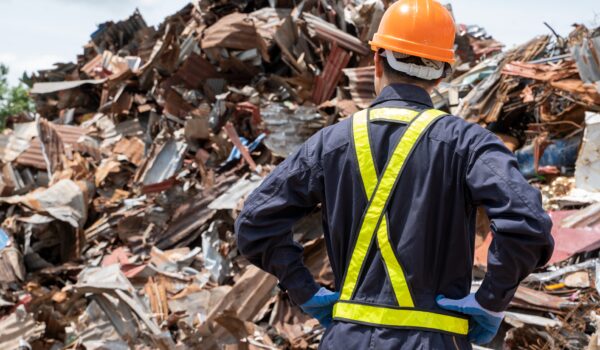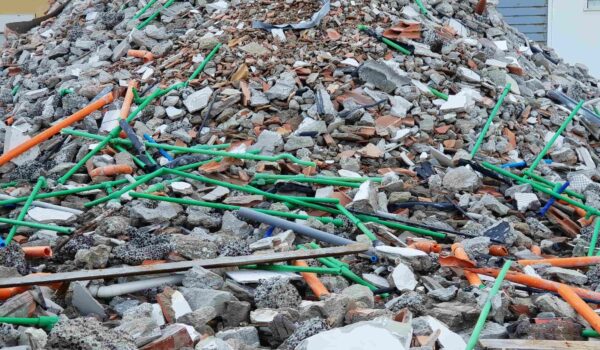It’s no secret the UK construction industry has a harmful impact on the environment, with plastic and synthetic materials deemed major contributors to this damage.
In the pursuit of reducing the construction industry’s impact on our planet, CuSP member, Materials in Mind, worked with SNUG Homes on its Low Carbon Modular Home project, creating a first-of-its-kind, net zero-carbon home.
Here, Jenny Ford from Materials in Mind shares insights on the project and how the developer limited carbon by specifying more natural materials.
The importance of low-carbon homes
The construction industry accounts for 19% of all plastic waste in the UK, which is equivalent to approximately 50,000 tonnes. Of this, 20,000 tonnes are sent to landfill to be incinerated, which releases toxic fumes into the atmosphere and increases carbon emissions.
Reducing the reliance on plastic and synthetic materials in the built environment, especially in the residential sector, is key to reducing this impact.
What’s more, domestic property energy consumption equates to approximately 14% of UK carbon emissions. Low-carbon homes aim to reduce this figure through the use of more sustainable energy sources such as heat pumps and solar panels, reducing reliance on harmful fossil fuels.
What is SNUG Homes and how is it tackling the sustainability problem?
SNUG Homes is on a mission to create environmentally friendly, high-quality homes which positively benefit people.
To support the developer with this mission, Materials in Mind worked with the team on SNUG Forest Road – an offsite, custom-build, net zero-carbon home.
The SNUG is a two-storey, one-bedroom, one-person home, measuring 44m2. Due to its small footprint, the home is designed to fit into back gardens or leftover plots, helping to provide affordable new homes and improve urban areas.
This carbon-positive home is made with quality natural materials and is highly energy efficient, helping to benefit people and the planet.
Copper’s role in the Forest Road project
SNUG Homes integrated copper piping into the Forest Road development, using them alongside its solar-assisted heat pump to deliver heating and water to the home.
Copper was chosen due to its excellent performance properties, including being infinitely recyclable without any loss in its quality, thereby retaining its value.
Furthermore, copper is not a specialist material or system, meaning the developer could work with local trades on the project, encouraging more people to get involved with SNUG while supporting members of the local community.
SNUG Homes is also constantly looking to minimise the use of potentially toxic materials within its projects, so copper made sense as the naturally safe choice for residents.
Unlike many synthetic materials, copper doesn’t melt, burn or give off toxic fumes in a fire.
Health and wellbeing
SNUG Homes are designed to support the health and wellbeing of everyone involved in the project, from the construction workers to the residents of the homes throughout the full lifecycle of the property.
This focus on health and wellbeing was supported through the use of copper in the development. Copper is well known for its antimicrobial properties, with a natural resilience against bacteria, viruses and fungi, while also ensuring there are no harmful contaminants or compounds being emitted into the drinking water during its use.
It can also be used to effectively kill waterborne bacteria such as legionella pneumophila, as it has the ability to withstand thermal shocking at 70 degrees Celsius.
In addition to using copper, health and wellbeing was prioritised by using offsite construction. This model allowed SNUG Homes to standardise, control and monitor the working environment more closely than a traditional building site, reducing the risk of accidents or injuries.
Looking to the future
Hoping to set precedents for further projects, SNUG Homes is now looking at where copper and other natural and sustainable materials can be used to replace plastics and synthetics in construction projects.
Copper can be used across water, heating, gas and air conditioning applications, so increasing copper within plumbing installations is incorporated into its research and development strategy for future homes.
This is not only because of its versatility, but also because it is naturally fire-safe, antimicrobial, antibacterial and proven to support health and wellbeing.
Through the use of copper in the Forest Road project, and prioritising its use in future projects, SNUG Homes has demonstrated the importance of prioritising value-driven projects, ensuring social, environmental and ethical risks are navigated across the supply chain.

